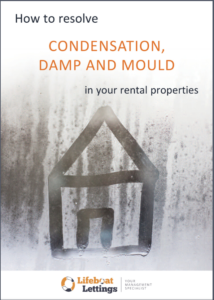
Lifeboat Lettings offers a specialist management service for landlords with co-living houses (also known as HMOs) in Kent. Our directors have many years experience as investors in this sector and are happy to advise on all aspects of managing co-living houses.
As anyone who is active in this sector will know, co-living investment properties present a unique set of challenges when it comes to management. This article aims to highlight the main considerations that an investor who is either aiming to manage the property themselves or is looking for a specialist management agency to take on the role.
As always if you have any questions regarding these types of properties or our management service then please get in touch.
Managing Co-Living Houses
Co-Living is a modern lifestyle choice for many, particularly in crowded affluent urban areas. In these areas individual properties are prohibitively expensive and much of the younger population choose flexible living arrangements without the ties and responsibilities of a whole property. It is also a social choice for many, who like the connection with a group of like-minded individuals in a property. Outside of this particular demographic there are various types of shared accommodation serving different requirements. The official term for a house with multiple individuals each renting a room and sharing the use of the communal areas is an HMO: House in Multiple Occupation and your local authority will normally use this term.
There are many considerations when setting up managing arrangements for a new HMO and we have highlighted a few of the most important below:
Get your general management approach right.
How you approach managing of co-living houses will be driven at least in part by the particular demographic you are targeting. For instance, in the student market your group will often come as a whole – or one or two as an advance party scouting out potential accommodation for the rest of their friends. Their stay will likely be for a year and then the property will need to be filled again. The property will normally be rented as a whole on a single tenancy. Communications can be to the group and they will muck in together normally in the running of the house. Often you will also be dealing with their parents during the set up and ending phases of occupation. The wear and tear on the property is normally higher and to a certain extent this goes with the territory. Be prepared also for more instances of feedback from the neighbours.
In other demographics the property operates essentially as a group of individuals and people will come and go from the property as their own personal circumstances change. There may well be less interaction in the communal areas and you may have to work harder to get the house functioning as a unit (for instance when dealing with cleaning responsibilities).
Be careful when mixing tenant types.
After you’ve got to grips with understanding the basic set up of your target market the next major consideration is ‘sticking to the rules’. Don’t try to force a particular house to operate in a way that is contrary to what feels right for the group in the house. This is particularly difficult if you have inherited a group in a property. The number one rule is to be very careful on tenant selection to fill a void in an established house. If your property is working well with young working professionals then stick to this demographic. Equally, if your house is an older group – particularly if there is only a small communal provision – then select tenants accordingly. In short you need to understand and be sympathetic to the ‘feel’ of the house and select accordingly.
Step in early to address problems.
Sometimes people do not get on, and small problems can soon escalate into major problems resulting in tenants leaving a property. It is important as managing agent to get involved quickly to reassure everyone that you are concerned about the harmonious running of the property. It is a fine line between when or when not to intervene and a very difficult balancing act which is learnt with experience.
Make sure everyone respects the communal areas.
Keep a close eye on communal areas and make sure the tenants are aware that you have a right to enter them and that they are not permitted to leave their belongings in these areas. Sometimes tenants do not realise that their tenancy is for their room and you are permitting them in addition to share use of the communal areas. There is a safety issue here potentially if items are left in stairways and escape routes, but in addition it will upset other tenants if one or more tenants use the communal areas for over flow storage of their personal items.
Have a robust system for regular inspections and condition reporting.
When managing co-living houses it is your responsibility as agent to regularly inspect the property as a whole and also the rooms. Primarily this is to enable regular testing or inspection of the safety equipment (fire alarm systems in particular). However, it is also a way to spot potential issues around cleanliness and repairs early and it reinforces the message to the tenants regarding use of the communal areas.
Keep documentation up to date.
Make sure all required documentation is up to date and on display (if applicable) in a prominent position in the property. This includes licenses (if applicable), record of fire alarm testing, EPC, Gas Safety cert, any emergency contact numbers and details of the managing agent. We will always make sure that there is a noticeboard present for this purpose and that it is not cluttered with extra items that appear from time to time (such as take away menus!). There will also need to be a paper trail for these items in the office together with a system for tracking regular inspections and condition reports.
Get tenants involved in filling voids
The tenants you already have in a property are often in the best position to determine the type of person who would work well in the house. So, when you get a void make sure you consult the tenants themselves first before making a selection of a new tenant. Oftentimes, they will have friends who might be interested in the room.
If you want information on managing co-living houses or assistance with your management questions then please get in touch.





